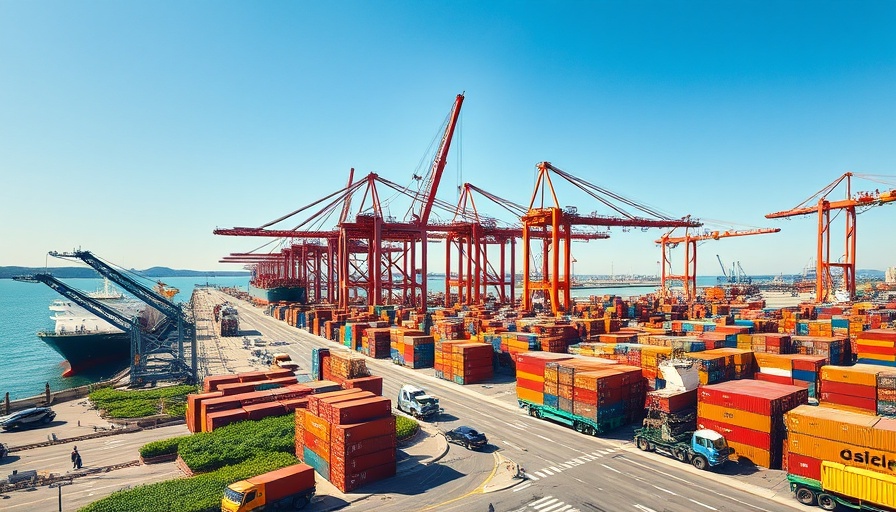
The Backlash Against Trump's Port Fee Plan: A Threat to Agriculture
US farm groups are raising significant concerns over President Trump’s proposed fees for China-linked vessels entering US ports, arguing it could severely impact their ability to export essential goods like soybeans and other agricultural products. The fees, which could reach as much as $3 million per port call, are positioned by the administration as a means to curb China’s dominance on the seas and bolster domestic shipbuilding. However, industry experts assert that the initiative is likely to have adverse effects on American industries, including agriculture.
Economic Ramifications: Farmers in the Firing Line
During a recent congressional hearing, representatives from various sectors voiced their fears that the proposed fees would result in unaffordable export prices. Experts predict that staple exports such as soybeans could drop by up to 42.2%, significantly harming farmers' livelihoods and threatening the economic stability of local communities reliant on agriculture. As noted by Gregory Kravitz, from Oxbow, the potential backlash of this policy won’t just harm China but also jeopardizes American jobs, demonstrating a disconnect between the administration's objectives and the actual implications for the industry.
From Boon to Burden: Revisiting Trump's Objectives
The Trump administration had promised to revitalize the industrial base and protect American jobs. However, voices from the energy sector, including the American Petroleum Institute, warn that these new shipping fees could undermine the U.S. position as a net energy exporter. Shipping costs are predicted to rise significantly, potentially setting back the energy dominance agenda due to the inability of domestic shipyards to meet market demands quickly enough to offset these costs.
Lessons from the Past: Can We Predict Supply Chain Chaos?
Reflecting on similar trade tensions during past administrations, the current situation poses a threat of cascading effects on global supply chains. Incredibly, rising port fees have already seen bulk shipping costs soar by 40%. Such increases have left companies like Dole Plc, who import bananas, at risk of spiraling costs or diminishing supplies, which furthers the urgency for a reevaluation of these fees. As the effects ripple outwards, the agricultural sector could find itself in a precarious position, reminiscent of chaotic market conditions during pandemic shortages.
Looking Ahead: What Should the Agricultural Sector Do?
The urgency for farmers and exporters to advocate for phased-in fees or exemptions is critical as they face an uphill battle against regulations that appear misaligned with their economic realities. As they navigate this evolving landscape, the agricultural community must gather data and build coalitions to ensure that their voices are heard effectively.
Amidst the turbulence in U.S. foreign trade policy, understanding the implications of such significant changes—and proactively preparing for them—could ultimately spell the difference between resilience and crisis for American farmers.
 Add Row
Add Row  Add Element
Add Element 



 Add Row
Add Row  Add
Add 
Write A Comment